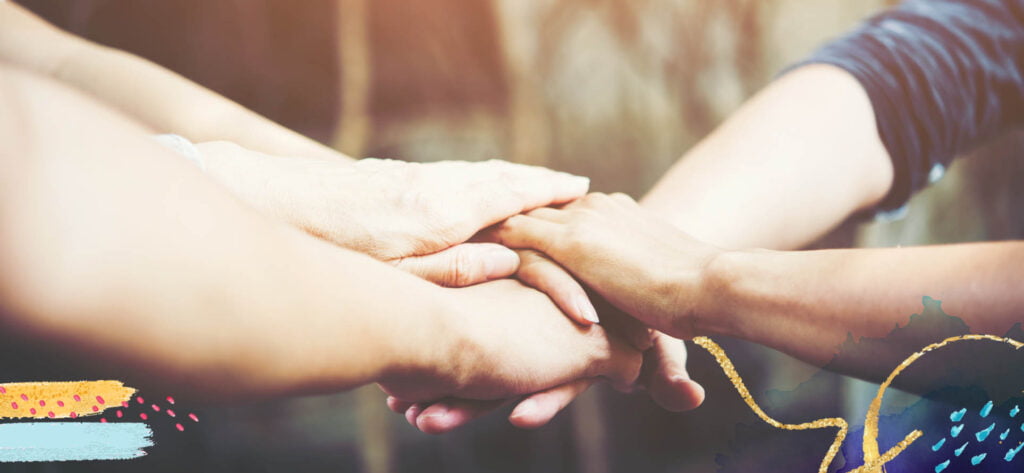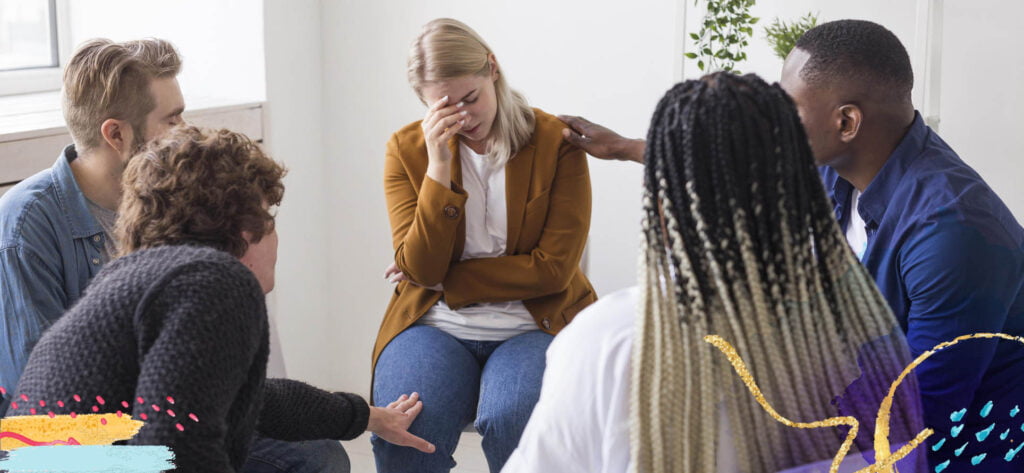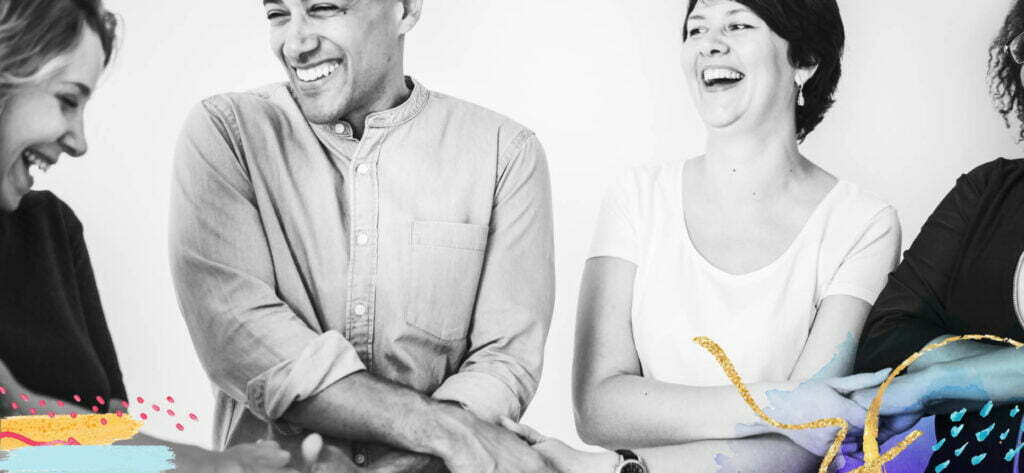Blog
The Upstander Movement

People all over the globe are uniting for positive change. This has always been the case. But there now seems to be a greater sense of urgency as we grapple with the many challenges of navigating the 21st century. We are bearing witness to the reality that a single, well-directed voice can change the world. This simple, but powerful idea, lies at the very heart of the modern Upstander Movement, a proactive, responsibility-taking mindset that asserts that the most significant societal changes begin with our day-to-day decisions and actions.
One of the most significant ways to measure human progress is by looking at how decisively a society refuses to tolerate previously common negative behaviors. For example, there was once a time when slavery was widely accepted, and women were told that their place was in the home. Our ability to recognize the folly of such backward thinking marks our species as one that can adapt, improve, and move forward toward a kinder, more equitable future.
Much of our identity as individuals and as a society is determined by what we choose to accept–from ourselves and those around us. The world is full of injustice: homelessness, racism, misogyny, political bias, religious persecution, poverty, and so much more. Overall, doing something about these problems starts with a firm decision to become the change-makers the world so desperately needs.
There are few feelings as disheartening as letting bad things happen and then thinking (all too late) that if you had stood up, spoken out, and taken action you could have made a real difference. This especially applies to the scourge of bullying. Whether it happens in the workplace, in academic, sporting environments or online, allowing bullying to flourish around us means we have become part of the problem.

There is no better time in human history to become familiar with the term ‘upstander’.
An upstander is a helpful bystander–a person who recognizes when a situation is wrong and acts promptly and decisively to make it right. Moreover, an upstander will always stand up and do their best to protect and support anyone who is being hurt or treated unfairly.
By creating a culture bolstered with upstanding citizens, we teach our children and our peers that we are all responsible for each other simply because we are all human. Indeed, life is a lot more fun when we can rise above negativity. Further, damage does not have to breed more damage.
For example, in a typical bullying situation, all attention is focused on the bully and their target. But, quite often, the most important people involved are the witnesses or bystanders. In many cases, it’s what they choose to do that makes all the difference in whether abuse is prevented or dealt with appropriately.
Upstanders aren’t born - they’re made.
Some people assume that being an upstander is unreachable. It’s not. As a matter of fact, the steps are pretty straightforward. I also occasionally hear someone say that upstander skills are something you either have or don’t have. That you’re stuck with your present mindset. Nothing could be further from the truth. Moreover, the more tools you put in your upstander toolkit, the more effective you’ll be.
These skills are learnable, coachable, and teachable. Hence, becoming an upstander in today’s world is not difficult. In my first book, The Bullyologist, I outlined some of the simplest ways to start. These include:
- If you see or learn about a bullying incident or other harmful behavior, do SOMETHING to help. Be a friend to the target, report the behavior, discourage others from contributing to the problem, etc. Being an impassive observer helps no one but the bully.
- Get friends and colleagues involved. There’s strength in numbers. The more people you can get to condemn and report the abuse, the more likely it will stop.
- Be aware of the bullying/harassment policy in place at work or school. Also, point out the specific guidelines or laws being breached by the perpetrator.
- Be a reliable, impartial witness to bullying incidents – accurately record time, place, persons involved, and precise details, so it can be investigated.
- Promote tolerance and acceptance by respecting differences.
- Stop hurtful messages and lies from spreading. The Internet has made it all too easy to spread malicious gossip about others. Refuse to be a part of it.
- Educate yourself about bullying, harassment and toxic behaviors. The more you know about its causes and effects, the better prepared you will be when it’s your turn to be an upstander.
The Upstander Movement© heralds a new era of empathy, ethics, and equality.
It is here. It is growing and creating noticeable change. As our status quo is continually being disrupted by everything from global pandemics to emerging technologies and environmental degradation, it’s becoming increasingly clear that treating each other and our world with compassion and care is what it will take for us to survive.
We are better when we’re united together. That means making conscious decisions about the kinds of social values we want to create, teach, and encourage. Further, the cohesion of our communities influences the state of the world.
Tribalism is the default human condition. From an evolutionary standpoint, we are hard-wired to form into like-minded groups. Basically, we counteract our fear of being isolated and alone in the world by striving to belong. Our desire to agree with the herd, to ‘go along to get along’ is a strong survival instinct. But it’s also one which upstanders must constantly battle against. At its best, tribalism gives us cooperation, shared knowledge, innovation and strength in diversity. But at its worst, it gives us blinkered ideologies, intolerance, denial and genocide. That is what I like to call the sheep mentality.
Becoming an upstander begins with an awareness of our natural inclination toward the ‘Bystander Effect’, in which we assume the role of silent bystanders. It reaches fruition when we intentionally shift from passive observer mode to proactive mode and become an upstander. Hence, by calling out injustice and abuse, we become a purpose-driven change-maker and an initiator of positive culture. I call this positive influence the Upstander Effect.

Workplace leadership has changed over the decades.
Authoritarian rules, fiercely protected hierarchies, and emotional distance have given way to the realization that the most productive workforce is a happy, openly communicative one. True leadership is the ability to transform ego into contribution and create meaningful connections in the workplace. Most importantly, the best leaders lead from a space of integrity and can decode The Upstander Effect and use it as a strategic tool of influence.
By instilling connection, compassion, and emotional intelligence into the bedrock of organizational culture, we create teams infused with higher levels of adaptability and resilience. Thus, preparing them to thrive today and into the future.
Indeed, for today’s leaders, caring for human capital is the most critical asset they bring to the table. No organization can reach its full potential without this approach, because it boosts both employee health and overall business performance.
We are confronted with a whole new generation of change-makers.
Millennials and Gen Z have made purpose a higher priority than the generations that came before them. They’re the largest generation entering the workforce and they’re on a mission to ignite workplace equality. Moreover, they’re willing to walk away from any employer that doesn’t support their values. They also gravitate toward career paths which they feel supported and respected and where they can explore their full potential.
This new batch of change-makers will explore novel ideas and shape workplace culture to facilitate the upstander movement. They realised that upstanders act as catalysts for progress and positive change. Hence, they join their older workmates in harnessing persistence, perseverance, and purpose to unlock new ways of thinking. Further, they’re ready to bring adaptability and purpose-driven leadership to the Upstander Movement©.
This growing movement isn’t solely about being reactive to negative behaviours and attitudes. It’s about creating a foundation of support, tools, and training that will lead into a new world of empathy, thoughtful leadership, and support-driven productivity that puts human well-being first.
Upstanders are the most proven weapon against bullying, harassment, discrimination, and toxic behaviors. They are also one of the most potent ingredients in business success. In fact, they are the warriors of change our world needs.
Are you an upstander or a bystander?
If you’d like to learn more about how to arrange Upstander Training at your business or book Jessica to deliver a compelling keynote, please contact Jessica Hickman at jessica@jesshickman.com.


